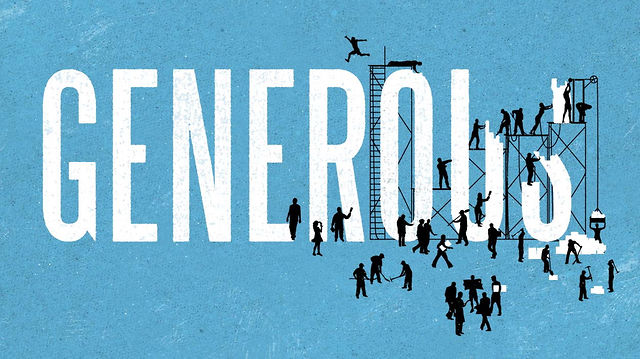[This blog appeared on The 2:10 Leader Blog earlier this year. I am importing this year’s blogs as I transition them to MarcFey.com]
I posted a discussion question in a LinkedIn leadership forum on the topic of gratitude–a simple question about its importance in the workplace, “What do you think is the role of gratitude in the workplace?”
Wow, that struck a cord–dozens of responses, some quite long in length, full of insight, wisdom. I share the top 10 quotes below. But before that, a few thoughts on what I have been discovering/rediscovering in my own journey right now.
It turns out gratitude is not just good for the people around you–it’s just as good FOR you as it is for others. Author and researcher Dr. Robert Emmons (coincidentally a professor at my alma mater UC Davis) makes this bold claim: gratitude has the power to give life meaning (click here re: his book).
I love how Emmons puts it: “People who view life as a gift and consciously acquire an ‘attitude of gratitude’ will experience multiple advantages: Gratitude enriches human life; it elevates, energizes, inspires and transforms. People are moved, opened and humbled through expressions of gratitude.”
Emmons calls gratitude a “chosen attitude,” that we are “willing to recognize and acknowledge that we are the recipients of an unearned benefit.” (You probably won’t be surprised to hear that Emmons proves that the enemies of gratitude are a victim mentality, and attitudes of deservedness and entitlement.)
Research shows that grateful people are:
- More empathetic than others
- Themselves generous and more likely to share their possessions and time with others (McCullough, Emmons, & Tsang, 2002)
- Less likely to judge themselves and others’ success based on the accumulation of things
- Resilient, showing that life events have little influence on experienced gratitude (McCullough, Tsang & Emmons, 2004).
 |
| Louie Schwartzberg’s presentation at TEDxSF |
One practical take-away is to keep a gratitude journal. Here are some of the research-proven and tangible benefits of developing this practice:
- Feel better physically: In an experimental comparison, those who kept gratitude journals on a weekly basis exercised more regularly, reported fewer physical symptoms, felt better about their lives as a whole, and were more optimistic about the upcoming week compared to those who recorded hassles or neutral life events (Emmons & McCullough, 2003).
- Attain more personal goals: Participants who kept gratitude lists were more likely to have made progress toward important personal goals (academic, interpersonal and health-based) over a two-month period compared to subjects in the other experimental conditions.
- Increase how engaged you are in life: A daily gratitude intervention (self-guided exercises) with young adults resulted in higher reported levels of the positive states of alertness, enthusiasm, determination, attentiveness and energy compared to a focus on hassles or a downward social comparison (ways in which participants thought they were better off than others).
- “Appreciated people move mountains.” Dina Haase
- “I hope that by showing gratitude to my team regularly I’m helping them to able to learn faster, organize information better but also able to engage in more complex analysis and problem solving, to be more creative and see more ways of doing things.” Ana Paula Calado
- Genuine gratitude comes out of genuine humility. Humility dislodges and displaces feelings of deserving; one cannot be grateful for what one believes is deserved. Genuine gratitude will have significant impact on both the receiver and giver; genuine gratitude from a leader will shape an organization. Ken Lanteigne
- A quick circle of appreciation will do wonders for your team – it’s so simple, many organisations don’t realise the value in it. Lisa Rowles
- “Thank you” represents a controlled ego and empathy. Mike Sacco
- Being grateful is so important in liife .. and it begins with our private life. Karin Sebelin
- To quote leadership maven John Maxwell: leaders touch a heart before they ask for a hand. David Ogilvie
- Another insight I believe is important – differentiate feeling gratitude with showing gratitude – I made this distinction recently when writing in my Gratitude Journal. When leading others it is important to stop and reflect on what you are feeling grateful for – it creates inner calm and peace – critical to being an effective leader. Then you are more capable of seeing what is happening with others and can turn up to show gratitude to them – inspiring them to feel significant and engaged! Mandy Holloway
- The key, I believe is to “keep it real”. Kimanshu Shah
- Gratitude as well as humbleness is key to leadership in my opinion, at any level. I certainly have far more admiration for people who adopt that approach in a corporate environment and as a result you see far happier teams, producing far better results. Melissa Buxton







